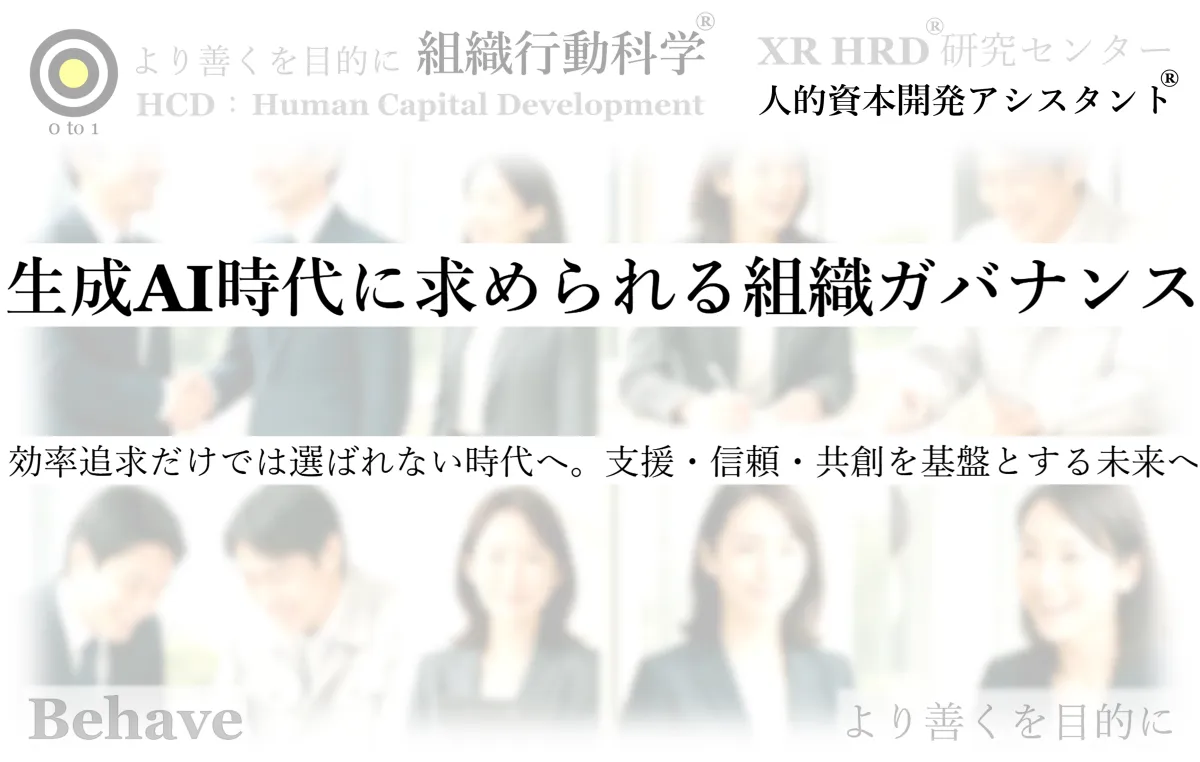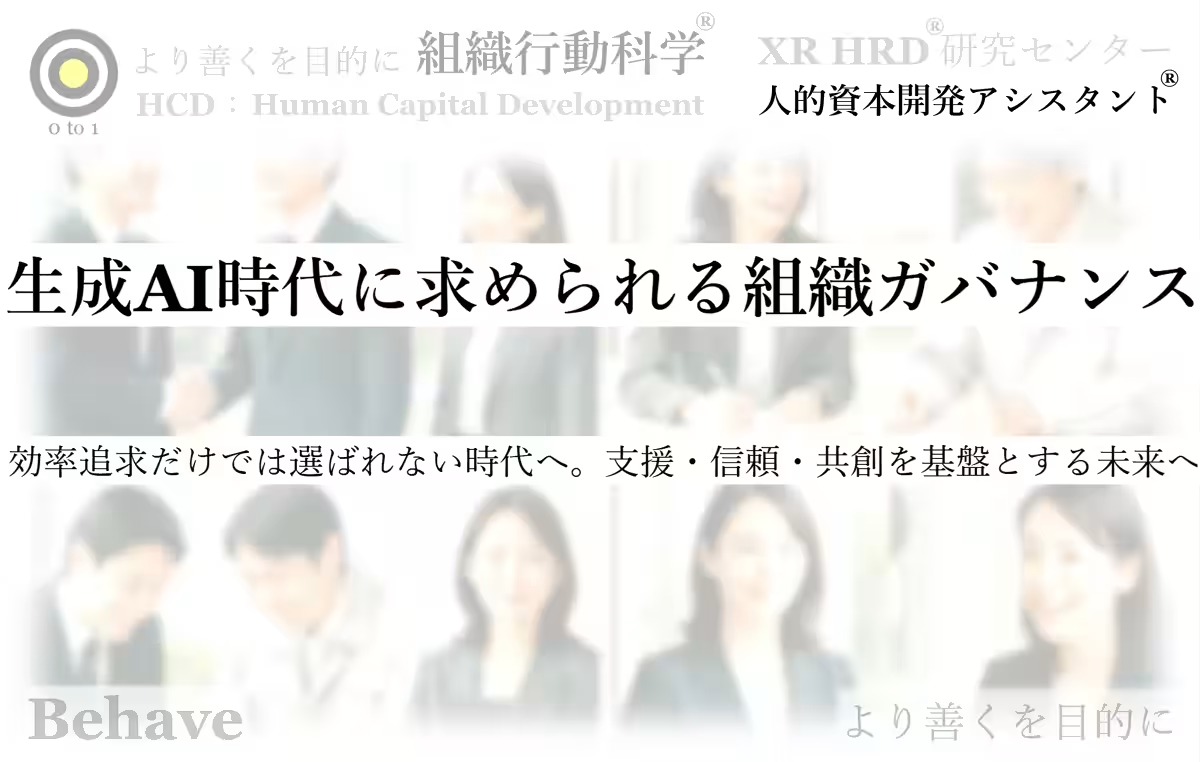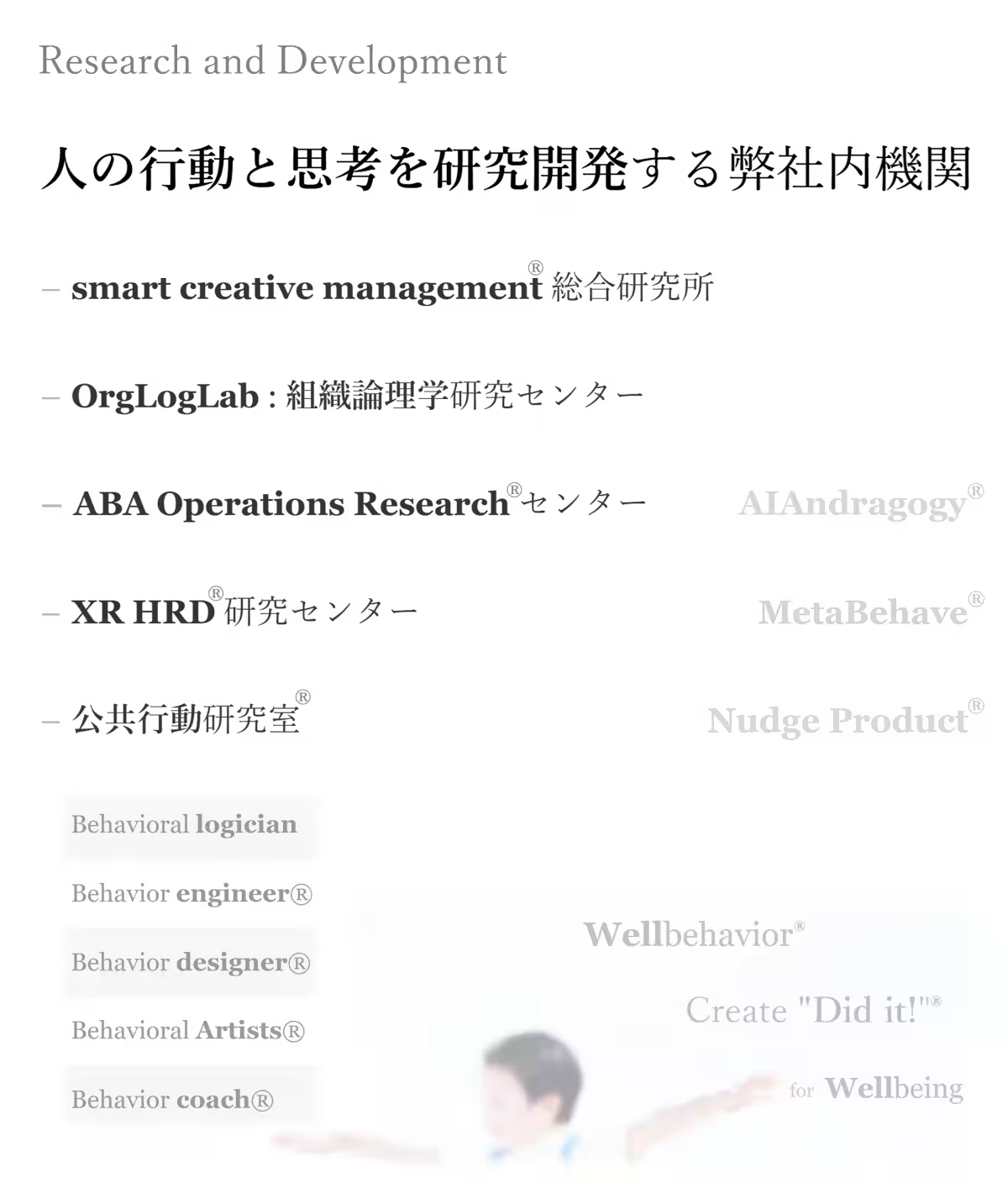

Proposing the Evolution of Organizational Governance in the Age of Generative AI
Proposing the Evolution of Organizational Governance in the Age of Generative AI
In a groundbreaking initiative, Request Inc., headquartered in Shinjuku, Tokyo, has released a proposal document titled "New Integration Proposal Supporting Governance Evolution: Effects and Efficiency." This initiative is part of their efforts to support human capital development, aiming to harmonize sustainable organizational growth with the building of social trust.
Background of the Proposal
The overarching mantra of the past has been focused on efficiency: "Fast, Accurate, and Abundant." We have pushed ourselves to achieve more in these areas, to the point where it became synonymous with our very existence as an organization. However, the landscape is quietly yet profoundly changing.
With factors such as an aging population, the proliferation of digital technologies, and a diversification of values reshaping our interactions, the emergence of generative AI has begun to redefine what is considered valuable. The ability to process tasks efficiently is no longer a unique selling point; rather, it is becoming the norm. As a result, many companies now confront a pressing challenge:
- - “Despite improvements in efficiency, why do we struggle to maintain trust with our partners?”
- - “Even with measurable results, why are we not continuously chosen?”
At this point, it becomes essential to ask ourselves: Whose interests does the organization serve, and what foundational support do we offer? The proposal addresses this fundamental reevaluation.
Overview of the Proposal
In respect of previous efforts towards efficiency while simultaneously looking towards future collaboration, the proposal outlines a pathway for the evolution of governance that supports collective creation. Key objectives include:
1. Avoiding the dichotomy between short-term results (efficiency) and long-term trust building (effects).
2. Translating and visualizing effects (support, trust, co-creation) into efficiency metrics (KPIs).
3. Advancing towards a "Future Co-Creation Governance" that builds trust capital with partners.
Key Highlights of the Proposal
The blueprint for this new governance model centers around several pivotal points:
- - The Necessity of Governance Evolution: Relying solely on efficiency can no longer sustain trust with partners.
- - Identifying and Overcoming Invisible Barriers: Challenges related to individual responses, experiential understanding, and translating effects into efficiency.
- - Vision for Future Co-Creation Governance: Becoming an organization chosen as a partner to create the future together.
- - Taking Initial Practical Steps: Embarking on small pilot programs to intentionally create successful experiences.
This proposal is grounded in the foundational “spirit of support and trust” instilled by the founders and the “efficiency and growth efforts” accumulated by their successors, advocating for a natural evolution toward next-generation governance.
Table of Contents of the Proposal Document
1. Introduction: The Evolution of Governance in line with societal advancements - the importance of efficiency and the changing expectations of society and partners - evolution towards future co-creation governance based on support, trust, and collaboration.
2. Previous Governance Models and New Perspectives Required: Achievements and limitations of efficiency-focused governance - factors influencing changes in societal environment and partner expectations - a comparative analysis of efficiency-oriented vs. integrated effectiveness and efficiency models - envisioned governance models moving forward.
3. Invisible Barriers to Promoting Effectiveness: Specificity challenges, the experiential understanding barrier, the distinction from efficiency, awareness gaps, and differences in time horizons - basic policies for overcoming these walls.
4. Strategies for Overcoming Challenges: The perspective of "Translating Effects into Efficiency" - design linking effects and efficiency - translation tables with concrete examples to facilitate organizational transformation.
5. Conclusion: Moving forward together - recognizing and respecting past efforts - the spirit of support and trust from the founders and the efficiency efforts of successors - declaration of evolution towards future co-creation governance.
The proposal is available for free download, allowing organizations to access these insights and integrate them into their governance frameworks.
Contact Information
For inquiries regarding this proposal:
Request Inc.
Human Capital Development XR HRD® Team
Email: [email protected]
Request Inc. stands out with its core brand centered on Organizational Behavior Science®, supported by collaborative research endeavors studying human behavior and thought across five affiliated institutions, having assisted over 930 companies with human capital development.
Company Overview:
- - Name: Request Inc.
- - Location: 3-4-8 Shinjuku, Shinjuku-ku, Tokyo 160-0022
- - CEO: Tomoyasu Kōbata
- - Business Scope: Organizational development, talent cultivation, AI utilization support, etc.
- - Corporate Website: Request Inc. Website
- - Company Profile: Profile
- - Download Company Information: Company Info Download



Topics Business Technology)










【About Using Articles】
You can freely use the title and article content by linking to the page where the article is posted.
※ Images cannot be used.
【About Links】
Links are free to use.